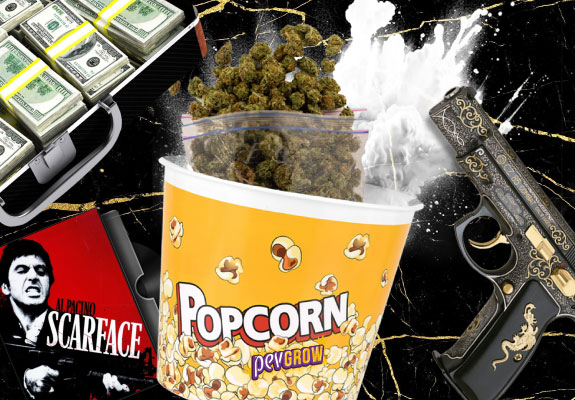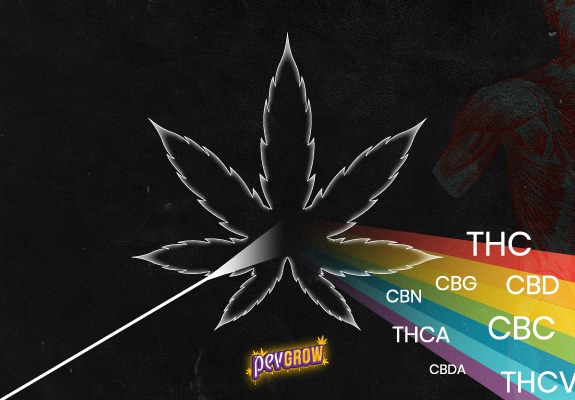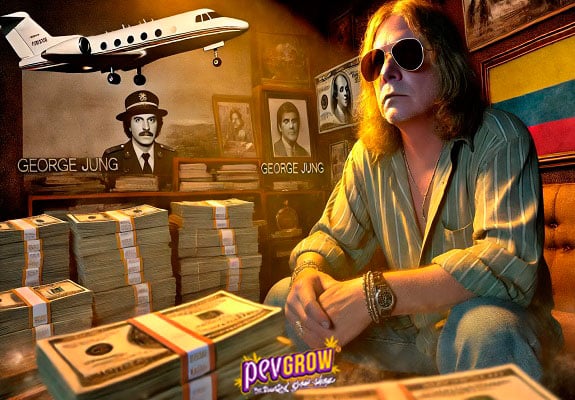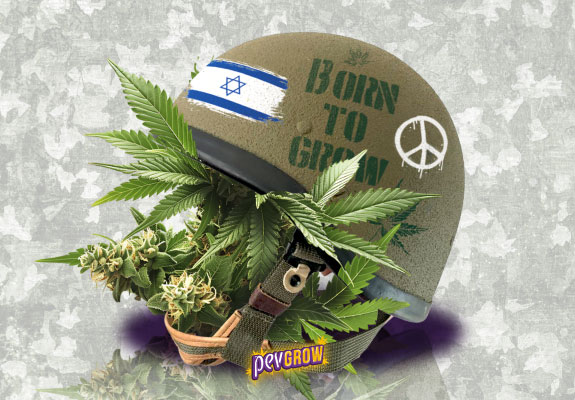

13-09-2024 06:40:26 - Updated: 13 September, 2024
Drug trafficking has been a recurring theme in cinema due to its dramatic weight and its ability to address social, economic, and political issues. From epic tales of rise and fall of mobsters to the raw accounts of violence and misery in the most affected areas by drug trafficking, these films show us a complex and disturbing reality. If you are a movie lover and interested in cannabis culture, this exhaustive list will take you through the best titles about drug traffickers in the seventh art.
🧐 Hollywood Classics about Drug Traffickers
Scarface (1983)
Directed by Brian De Palma and starring Al Pacino, “Scarface” is one of the cornerstones of drug trafficking cinema. The film follows the life of Tony Montana, a Cuban immigrant who arrives in Miami and quickly rises in the organized crime world thanks to cocaine trafficking. His unchecked ambition, combined with his brutality and disregard for the rules, make him an icon of pop culture. “Scarface” is not only a critique of the distorted American dream but also a deep analysis of how power and greed can destroy a person.
Blow (2001)
Starring Johnny Depp and directed by Ted Demme, “Blow” tells the true story of George Jung, a man who played a key role in introducing cocaine to the United States during the 70s and 80s. The film explores how Jung, an ambitious young man, went from being a simple weed dealer to working for the Medellín cartel and becoming one of the largest cocaine distributors in the country. “Blow” is a fascinating film that combines drama, crime, and biography, showcasing the rise and fall of a man who had it all, only to lose it due to his excessive lifestyle.
Traffic (2000)
This thriller directed by Steven Soderbergh offers a multifaceted view of drug trafficking, exploring how it affects different levels of society, from high-ranking government officials to the families of users. With a stellar cast including Michael Douglas, Benicio del Toro, and Catherine Zeta-Jones, the film intertwines several stories that show the fight against drugs from multiple perspectives: the government, the cartels, law enforcement, and consumers. “Traffic” was acclaimed for its realistic approach and won four Academy Awards, including Best Director.
American Gangster (2007)
Starring Denzel Washington and Russell Crowe, and directed by Ridley Scott, this film is based on the life of Frank Lucas, a drug trafficker who built an empire in New York during the 70s by importing heroin from Southeast Asia. “American Gangster” explores the duality between Lucas, a man who, despite being a ruthless criminal, follows a code of honor, and Richie Roberts (Russell Crowe), an incorruptible cop who becomes his nemesis. The film is not only an exciting thriller but also a reflection on morality in a world where the line between legal and illegal is very thin.
Carlito’s Way (1993)
Another classic by Brian De Palma, “Carlito’s Way” follows the story of Carlito Brigante (Al Pacino), a Puerto Rican ex-gangster who seeks to remake his life after getting out of prison. However, the past and his old ties to drug trafficking do not let him be. The film is both a crime thriller and a tragedy, exploring themes of redemption, loyalty, and destiny. With a cast that includes Sean Penn in a memorable role as a corrupt lawyer, “Carlito’s Way” is a gripping tale of how to escape from a world that seems impossible to leave.
🎬 Latin American Films and Set in Latin America
El Infierno (2010)
This satire directed by Luis Estrada is one of the most emblematic films about drug trafficking in Mexico. Set against the backdrop of the war on drugs, the film follows Benny García, an immigrant who returns to his hometown only to find a violent reality dominated by the cartels. “El Infierno” combines black humor, social critique, and graphic violence to offer a raw and unvarnished view of how drug trafficking has devastated entire communities in Mexico. The film is both entertainment and a biting reflection on corruption and hopelessness.
Miss Bala (2011)
Directed by Gerardo Naranjo, “Miss Bala” tells the story of Laura Guerrero, a young aspiring beauty queen who gets caught up in the war between cartels in Tijuana. The film unfolds from the perspective of an involuntary victim who is dragged into a world of violence and corruption. “Miss Bala” is not only a tense and dramatic thriller but also a critique of the devastating impact of drug trafficking on the lives of innocent people. The film is noted for its visual style and its ability to maintain tension throughout its runtime.
Salvajes (Savages) (2012)
This film directed by Oliver Stone centers on two friends who grow weed in California and are forced to confront a Mexican cartel seeking to take over their operation. With a cast that includes Blake Lively, Taylor Kitsch, Aaron Taylor-Johnson, Benicio del Toro, and Salma Hayek, “Salvajes” is a blend of thriller, action, and drama. The film stands out for its stylized violence and its exploration of moral ambiguity in an environment where the lines between good and bad are blurred.
María Full of Grace (2004)
This Colombian film, directed by Joshua Marston, tells the story of María, a young woman who becomes a “mule” for a drug cartel, transporting heroin capsules in her stomach from Colombia to the United States. “María Full of Grace” offers a deeply human look at the people caught in the drug trafficking chain, showing how poverty and lack of opportunities push many to make desperate decisions. Catalina Sandino Moreno’s performance as María was widely praised, and the film was nominated for an Oscar for Best Foreign Language Film.
🎯 Contemporary Hollywood Cinema about Drug Trafficking
Sicario (2015)
Directed by Denis Villeneuve and starring Emily Blunt, Benicio del Toro, and Josh Brolin, “Sicario” is a tense thriller that explores the war against the cartels on the border between the United States and Mexico. The film follows Kate Macer (Blunt), an FBI agent who is recruited for an undercover operation to dismantle a cartel. As the mission progresses, Kate discovers the brutality and moral ambiguity of the war on drugs. With stunning cinematography by Roger Deakins and impeccable direction, “Sicario” is one of the most acclaimed films of the last decade on the topic of drug trafficking.
American Made (2017)
Based on the true story of Barry Seal, a pilot who worked for both the CIA and the Medellín cartel, “American Made,” titled “Barry Seal el traficante” in Spain, is a film that mixes action, comedy, and biography. Starring Tom Cruise, the film follows Seal as he goes from being a commercial airline pilot to becoming a drug and arms trafficker. The film stands out for its fast-paced rhythm, dynamic visual style, and irreverent approach to a true story full of scandals and conspiracies.
The Infiltrator (2016)
Starring Bryan Cranston, this film is based on the true story of Robert Mazur, an undercover agent who infiltrates Colombian cartels during the 80s. “The Infiltrator” is a tension-filled thriller that shows how Mazur infiltrates Pablo Escobar’s organization, facing personal and moral risks. The film stands out for its recreation of the era and for exploring the complexities of working undercover in one of the most dangerous businesses in the world.
🔥 Documentaries and Films Based on True Events
Cocaine Cowboys (2006)
This documentary directed by Billy Corben offers a detailed look at the rise of drug trafficking in Miami during the 80s. Through interviews with involved individuals, such as drug traffickers, pilots, and law enforcement agents, “Cocaine Cowboys” narrates how cocaine transformed Miami into the crime capital of the United States. The documentary is noted for its dynamic approach and its ability to capture the chaotic atmosphere of an era when violence and easy money dominated the city.
Escobar: Paradise Lost (2014)
This film combines real events with fiction by telling the story of Nick (Josh Hutcherson), a young Canadian who falls in love with Pablo Escobar’s niece (Benicio del Toro). As he becomes involved with the family, Nick discovers the dark and dangerous side of the drug trafficking world. Although the love story is fictional, the film offers a view of Escobar’s power and influence during his peak. Benicio del Toro delivers a commanding performance as the infamous drug trafficker, showcasing both his charisma and brutality.
Loving Pablo (2017)
Directed by Fernando León de Aranoa and starring Javier Bardem and Penélope Cruz, “Loving Pablo” is based on the memoirs of Virginia Vallejo, a Colombian journalist who had a relationship with Pablo Escobar. The film narrates the rise and fall of Escobar from Vallejo’s perspective, offering an intimate and personal view of one of the most dangerous men in history. Although the film received mixed reviews, the chemistry between Bardem and Cruz and its recreation of the era make it an important addition to films about drug trafficking.
Killing Pablo (2002)
Based on Mark Bowden’s book, this documentary follows the operation of U.S. and Colombian forces to capture and kill Pablo Escobar. “Killing Pablo” offers a detailed look at the military and intelligence tactics used to take down the leader of the Medellín cartel. The documentary is a fascinating account of how the combination of political, military, and financial power came together to bring down one of the world’s most wanted criminals.
✨ Mexican and Narco Films
La Ley de Herodes (1999)
Directed by Luis Estrada, this political satire is one of the most influential films in Mexican cinema. Although it does not focus exclusively on drug trafficking, the film addresses how corruption and power in Mexico are interrelated with organized crime. The story follows Juan Vargas, a corrupt politician who is appointed mayor of a small town and quickly falls into the vicious circle of power, money, and violence. “La Ley de Herodes” is both a biting critique of the Mexican political system and a reflection on human nature.
El Patrón: Radiografía de un Crimen (2014)
This Argentine film directed by Sebastián Schindel is an exploration of social inequality and exploitation in a context where drug trafficking and crime affect the lives of the most vulnerable. The story follows Hermógenes, a humble man who becomes the pawn of a corrupt businessman involved in illegal activities. Although it is not a film exclusively about drug trafficking, “El Patrón” shows how poverty and desperation can lead ordinary people to become trapped in violence and illegality.
Huerfanos de la Guerra (2014)
A Mexican film that addresses the aftermath of drug trafficking violence in an ordinary family. Through the story of a mother and her children trying to survive in a context of war between cartels, the film offers an emotional and heartbreaking view of how the narco destroys the lives of those with no choice. With an intimate narrative and committed direction, “Huerfanos de la Guerra” is one of the most powerful films in independent Mexican cinema on this topic.
📢 Independent Cinema and Social Critiques
City of God (Cidade de Deus) (2002)
Directed by Fernando Meirelles and Kátia Lund, this Brazilian film is a brutal portrait of life in the favelas of Rio de Janeiro, where drug trafficking is a daily reality. Based on true events, “City of God” follows several characters over decades as they try to survive in an environment where violence, crime, and drugs are omnipresent. The film is both a visual masterpiece and a devastating social critique on how lack of opportunities and inequality fuel the cycle of poverty and violence.
Amores Perros (2000)
Directed by Alejandro González Iñárritu, “Amores Perros” is a Mexican film that intertwines three stories in Mexico City, all connected by a traffic accident. Although the film does not focus exclusively on drug trafficking, one segment explores how the life of a hitman is shaped by violence and despair. “Amores Perros” is a raw portrait of urban life in Mexico and how crime, the narco, and poverty intertwine in everyday life. The film was an international success and launched Iñárritu’s career.
El Maríachi (1992)
This independent film directed by Robert Rodríguez was made on a minimal budget and became a cult hit. “El Maríachi” follows a wandering musician who is mistaken for a hitman and gets caught up in a war between drug trafficking gangs in a small Mexican town. Although the film is primarily an action thriller, it explores the impact of organized crime violence on the lives of ordinary people. The success of “El Maríachi” led Rodríguez to direct two sequels, “Desperado” and “Once Upon a Time in Mexico,” which also touch on the theme of drug trafficking.
👾 Movies Focused on Specific Cartels
Sin Nombre (2009)
Directed by Cary Joji Fukunaga, “Sin Nombre” is a film that combines the narrative of drug trafficking with migration through Mexico. The story follows a young gang member who joins a family on their dangerous journey to the U.S. border. The film addresses how drug trafficking and violence affect both migrants and gang members, offering a realistic and moving view of the struggles faced by those seeking a better life. “Sin Nombre” is acclaimed for its authenticity and its focus on critical social issues.
La Reina del Pacífico (2012)
Based on the true story of Sandra Ávila Beltrán, known as “The Queen of the Pacific,” this film narrates the life of a woman who became a key figure in drug trafficking in Mexico. With a narrative that spans from her youth to her rise in the criminal world, “La Reina del Pacífico” offers a different perspective by focusing on the role of a woman in a male-dominated industry. The film stands out for its exploration of the cunning and charisma of its protagonist, as well as its implicit critique of corruption and impunity in Mexico.
⭐ Cinema about the Narco and Society
Nuestro Tiempo (2018)
Directed by Carlos Reygadas, “Nuestro Tiempo” is a Mexican film that, although it does not focus exclusively on drug trafficking, addresses the tensions and challenges in rural life in a country marked by violence and illegality. The film follows a couple raising fighting bulls in the Mexican countryside, but their quiet life is interrupted by personal and social problems that reflect the complex reality of a country affected by the narco. “Nuestro Tiempo” is a visual work of art and a profound reflection on life, nature, and human relationships in a violent context.
Heli (2013)
Directed by Amat Escalante, “Heli” is a film that portrays the brutality of drug trafficking in a small community in Mexico. The story follows Heli, a young man trying to protect his family after his younger sister accidentally gets involved in a drug robbery. The film is known for its relentless realism and its uncompromising focus on the violence and despair surrounding the narco. “Heli” was acclaimed at international film festivals, winning the Best Director award at Cannes.
🔰 International Films
No Man’s Land (2001)
Directed by Danis Tanović, this film set in the Bosnian war does not focus exclusively on drug trafficking, but explores how drug and arms smuggling fuels war conflicts. The film follows two soldiers trapped in no man’s land during the war, as conflicting factions and external interests complicate the situation. “No Man’s Land” is a powerful film that offers an ironic and critical look at the absurd nature of war, showing how greed and organized crime thrive amid chaos.
Pusher (1996)
Directed by Nicolas Winding Refn, “Pusher” is a Danish film that explores the underworld of drug trafficking in Copenhagen. The story follows Frank, a low-level drug dealer who finds himself in a desperate situation after a trafficking operation goes wrong. The film is a raw and realistic portrayal of life in the criminal world, with a tense atmosphere and a focus on the moral and personal dilemmas of its characters. “Pusher” was a success in independent cinema and led to two sequels that further explore the world of crime in Denmark.
Gomorra (2008)
Based on Roberto Saviano’s book, “Gomorra” is a Italian film that portrays the Neapolitan mafia and its control over drug trafficking, construction, and other sectors in Naples. The film follows several characters whose lives are intertwined by the violence and corruption of the Camorra. “Gomorra” stands out for its almost documentary approach and its brutal realism, showing how the mafia infiltrates all aspects of society. The film was acclaimed for its authenticity and is considered one of the best cinematic representations of organized crime in Italy.
💎 Conclusion and Pevgrow’s Opinion
Films about drug trafficking not only provide entertainment but also allow us to understand the complexity of a phenomenon that affects millions of people worldwide. These films address drug trafficking from multiple perspectives: from the powerful cartel bosses to the victims trapped in a cycle of violence and poverty. At Pevgrow, we believe that these stories, although sometimes harsh, are necessary to open our eyes to a reality that is often ignored.
If you are a movie lover or simply curious to better understand the world of drug trafficking, this list offers a comprehensive and varied selection that spans from Hollywood classics to gems of independent cinema. Enjoy exploring these films and immerse yourself in the fascinating, albeit dark, universe of the narco on the big screen!






Wow, I can’t wait to see Pusher and El Mariachi, it was about time I caught up with those movies, because here in Tenerife you can’t miss a single one!